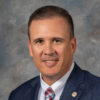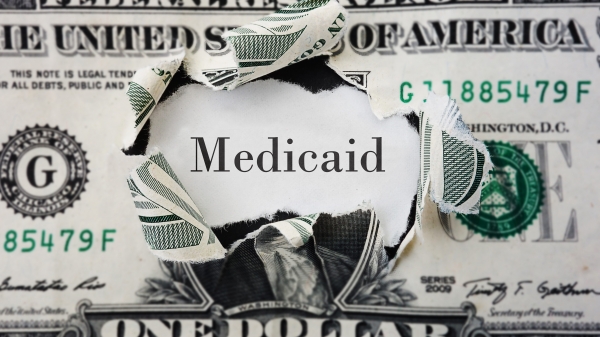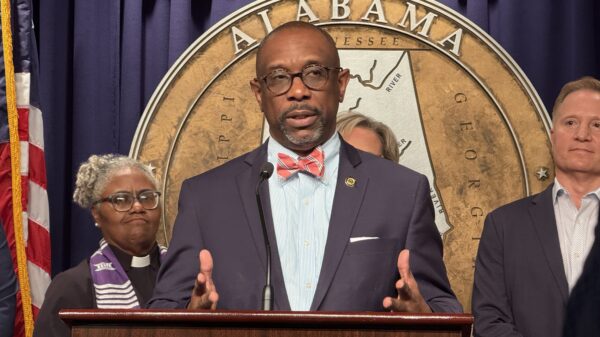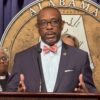Staff Report
MONTGOMERY–On Tuesday, Dr. Don Williamson, the interim director of Alabama Medicaid, spoke to the Permanent Joint Legislative Committee on Medicaid Policy explaining how the expansion of Medicaid would affect the state.
Williamson explained the expansion programs: costs, benefits, problems along with upcoming changes to Medicaid and healthcare insurance will have a direct effect on how Medicaid is handled moving forward.
Speaking of the Supreme Court ruling regarding the Affordable Care Act, Williams said, “The individual mandate (which says citizens must be covered by some sort of healthcare insurance or face a federally imposed penalty in the way of a tax) remains because that has a role in what happens to individuals who need Medicaid. The healthcare exchanges remain because individuals are going to be driven to the exchange to purchase insurance to comply with the individual mandate.”
Maintenance of effort requirement for states, both for the child health insurance program and for Medicaid remains intact. It freezes those activities that Medicaid has been engaged in and that Childhood Insurance has been engaged in as of March 23, 2010. That means that Alabama can not impose an asset tax for Medicaid, cannot create a waiting list for AllKids and cannot roll back enrollment for AllKids because these programs were all in effect on March 23, 2010.
“That is the floor that we have to build up from. If we are going to comply with federal law we cannot go below it,” said Dr. Williamson.
The calculation of income to qualify for Medicaid will change to the MAGI system (Medicaid Adjusted Gross Income). This sees that all states will calculate Medicaid the same way which means Alabama will have to change its enrollment process.
“That’s going to cost some money, we are going to raise that if we have to borrow, steal or talk to some other states that have developed some enrollment programs and see if we can cannibalize them especially if they are in the public domain,” said Williamson.
The MAGI number is reached by disregarding 5 percent of an individual’s income, in essence changing the multiplier from 133 percent to 138 percent of the federal poverty level to qualify for Medicaid.
He said that there is no deadline for the Medicaid expansion. “Alabama could choose to expand Medicaid today, it could choose January 1, it could choose 2014, it could choose to expand Medicaid presumably in 2016. But for whatever time we choose not to expand Medicaid after 2014 we are losing 100 percent money for each of those years,” said Williamson. Federal dollars will fully fund any Medicaid expansion 100 percent for the first 3 years. This will decline gradually and in 2020 will reach the set rate of federal funding at 90 percent with a 10 percent state matching funds.”
Dr. Williamson warned the legislators of two impending problems with or without the expansion. He said that because of proration he has cut physician payments by 10 percent but that the legislature had passed a bill requiring the rate to be raised by 10 percent beginning October 1, 2014.
Williamson said that the first problem will arise as a result of federal program designed to raise physician payments to Medicare rates for two years. Medicaid currently pays approximately 78-79 percent of the Medicare rate. This will result in a substantial raise for primary care physicians beginning in January 1, 2013.
He said that these rates will only be paid for two years “so that is going to be an issue beyond 2013.”
The second problem he raised regarded Disproportionate Share Hospital (DSH) payments that cover unpaid medical bills to hospitals that were incurred by the uninsured.
Currently there is an estimated $11.3 billion of DSH money in the Medicaid program nationwide. That will decline by 61 percent beginning in 2014 and stabilizing in 2019. Williamson said that the reason this cut was made was because the American Medical Association determined that if all patients would be covered by some type of insurance there would no longer be a need to provide the supplemental payments to hospitals.
“There are today in Alabama persons who are eligible for Medicaid but have never enrolled,” said Williamson. The problem he says is that when the healthcare exchange is put into effect many of those people will realize that they qualify. But because they met the qualifications before the expansion they will fall into the category of the old Medicaid match of a 68/32 because they are not “newly” qualified.
These people would include women that are not pregnant and children that have never been sick. “The good news is that these kids will be fairly inexpensive. They haven’t had a reason to go to the doctor. They just, for whatever reason, have not got insured,” said Williamson. Estimates claim that this could increase the nationwide Medicaid population by up to 10 percent, without the expansion. Since Alabama has the most constricted plan in the country, Williamson doesn’t think the number should be small.
Based on the Kaiser Foundation Report, Williamson’s anticipation is that the expansion could increase the number of eligible Medicaid participants by 57 to 75 percent.
According to Dr. Williamson’s assumptions the expansion would lead to an estimated 351,000 to 456,000 new enrollees. Williamson estimates that there are 244,000 currently uninsured that would become eligible. He also estimates that there are another 100,000 people either currently insured or already eligible for Medicaid who will come to the Medicaid program when enrollment is opened under the expansion.
“The biggest portion of that will be people who are currently insured in small business and then small businesses find that it is cheaper to drop insurance, pay the penalty and for those people to be covered under Medicaid,” said Williamson. “It will be the shifting from the small private market into the Medicaid market.” The current penalty is estimated at $2,000 per FTE.
Senator Greg (R-Montgomery) Reed asked, “According to our conversation the other day, doesn’t this create a hole for the lowest income working people in the state of Alabama that are being disenfranchised by the definition of this?”
“I think you are exactly right, the Affordable Care Act closed one hole and that was the hole around Part D Medicare but the Supreme Court ruling has opened another hole. It is quite possible that in a number of states those people who are most in need of insurance and are financially least able to acquire the insurance are going to be the one’s left uninsured,” said Williamson.
When the exchange goes into effect the rules of the insurance market will change. There will no longer be small group rates or any risk-based ratings, it will now go to universal issue with community rating. With that change Williamson believes that there will be double digit increases in both the small group model market and the individual market and beginning January 1, 2013.
When asked what the the expansion could mean to Alabama’s economy, he said, “Alabama Medicaid is matched at 68/32. So, you think that for every dollar you put in you get three back. So, you would think that $100 million translates into $300 million. But if you look at our program that is really not how it works. If we put $600 million in we get $5.4 billion back, that is a 9-1 match. So that $100 million would probably, when you filter it through the multipliers, CPE, and all of those, you are not talking about $300 million, you may be talking about $600 million, you may be talking about $700 million, and that is a real number.”
Committee members were asked their thoughts after the meeting adjourned:
“I think the real essence of providing quality healthcare to all of the citizens of Alabama is so important that I think members of the legislature and members of the Medicaid Task Force will take this study to heart and will do the right thing because if you have a healthy public then you have a real healthy workforce. That workforce will be more productive and companies will be more productive. This is the beginning of a very lengthy process. This is a learning process, a lot of information came in today that will be helpful as we make decisions. It is always important to remember we are here to serve the people and this is a peoples issue. I believe in doing what is right by the people of Alabama,” said Senator Billy Beasley (D-Clayton).
“This meeting was another meeting that was educating us, giving us the facts and figures and what we are up against in terms of the decisions that we need to make. Personally, I feel that everybody should have access to affordable healthcare and that we should do everything that we can. It is a win-win situation. When you have a healthy population, you have a productive population. Also, when people have access to healthcare in the beginning they can get preventive healthcare and not wait until they get to a chronic stage which causes the amount of money that they are spending to increase. If they don’t have that coverage they are going to wait until it becomes critical and go to the emergency room where the costs are astronomical,” said Senator Vivian Figures (D-Mobile).
“This is most important issue we face. Medicaid and its impact on the people of our state and the economy can not be understated. Medicaid expansion is the biggest economic opportunity since our nation decided to build roads and bridges. Its impact on the people will be substantial and if we do the work we need to do to expand Medicaid for all who need to be included then this will increase prosperity and healthcare across our country,” said Representative Ron Scott (D-Fairfield).
“I think the meeting was very helpful to everyone who attended. Of course legislators, but also policy groups and advocates… everyone who was present. Dr. Williamson’s ability to get into the fine dilemmas of Medicaid has once again surfaced. He is the right man for this much needed job. These meetings are going to arm us with the knowledge and tools we need for the structural changes that have to occur in Medicaid. There are urgencies we must face in the next sixty days before the fiscal year ends but we are looking at a new design to Medicaid. We are looking at a new delivery system for people on Medicaid. We are going to look at eligibility and enrollment changes and systemic changes to a system that historically has not had change. For thirty years people have been sitting on the same pew, well, we are here to say that the church services has just changed. These meeting are being instrumental in the education necessary to move forward to properly run the $5 billion dollar healthcare system,” said Representative Greg Wren (R-Montgomery)
Williamson is preparing economic impact numbers for the possible expansion’s impact on Alabama’s economy.
The next committee meeting is scheduled for September 12.




















































